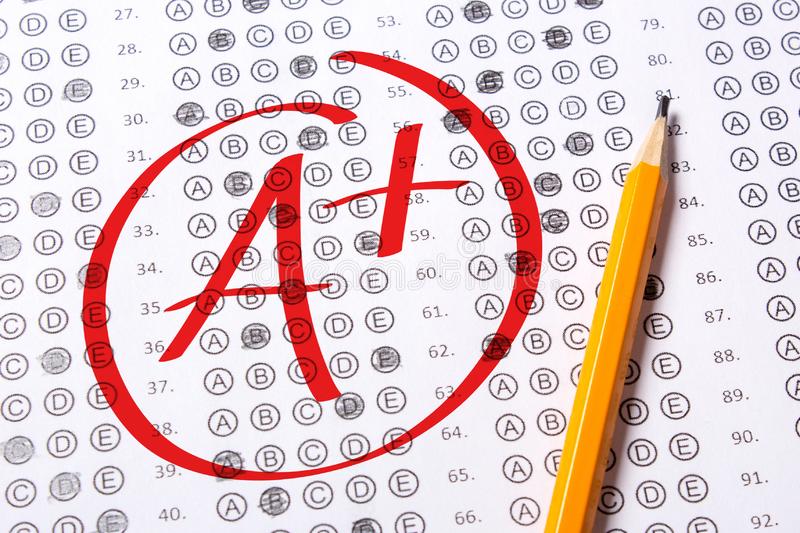Grades Do Not Motivate Academic Work Ethic
October 17, 2022
Time and time again, year after year, I hear from teachers that they wish they did not need to grade every assignment, but they must because they just cannot get their students to work hard otherwise. After thirteen years of being a student in this district, I have concluded that this notion is false. While a grade may motivate students to meet certain deadlines or criteria, the true motivator of any student to pursue academic excellence is personal interest.
When a new project is introduced in my French class, or a book is handed out in English, I get excited. I enjoy being creative, improving my French, and reading new things. I am just as likely to go above and beyond on the assignment whether it is worth 100 points or 5. On the contrary, I groan when I have to do anything for math. No matter how many points the math assignment is worth, I will put in as little effort as possible to get an A. No amount of credit could inspire me to do extra research on principles or proofs, because I just do not enjoy the subject. For other students, the exact opposite may be true, but my point is the same: a grade is not going to force a student to meaningfully engage with learning.
In fact, a grade is likely to deliberately disengage a student from diving deeper into whatever it is they are working on. When point values are assigned to certain criteria on an essay, project, or worksheet, that basically ensures that the student will do what is explicitly asked and nothing more. If there were no points, or points only granted upon completion or effort, a student who cares would work to their heart’s desire to learn for themselves, and a student who does not particularly love that subject would not be penalized. More specifically, that student who does not care for the subject would not feel resentful towards it.
If you do not know what I mean when I say “resentful”, then you are probably a teacher. Speaking from personal experience and also from the experiences of several of my peers, having to work on something that you find incredibly dull just to protect your precious GPA or rank is frustrating, and the fear of one class in a subject you do not plan on pursuing being the destruction of your academic record is just annoying. Maybe it’s my stubborn personality, but that annoyance makes me want to work less.
A common student experience that illustrates this resentment is watching mandatory assigned videos. When a teacher attaches point values to watching a Youtube video or Edpuzzle outside of class, I will almost definitely put the video on 2x speed and work on something else in another tab. I just want the little green checkmark that “proves” I watched the video all the way through. I will probably think to myself, “the teacher should just teach us this in class if they really want us to know about it”. Yet when a teacher suggests we watch a video for extra help or for some additional context to a lesson, I am more willing to watch it as a means of better understanding a subject.
Last year, I took APUSH, and Mr. Haldeman posted an hour-long documentary on American Indian maize cultivation. He told us that it was a video he enjoyed and found very informative, and we could watch it if we wanted. I watched the whole thing on a Saturday afternoon, just for the heck of it. Most of the class did not, and nothing bad happened to them. I found it interesting, they did not, and all involved parties were satisfied.
Mr. Moxey’s AP Lang class is a working example of a grade-free class. The first quarter is nearly over, and I have yet to receive a grade for a single piece of work that I have completed. And I have done plenty of work for Lang. Aside from my general love of reading, there are several reasons for why I, along with most of my classmates, am motivated to do everything that Mr. Moxey assigns, despite knowing that there will be no grade. The first is that I want to keep up with the class. It would be embarrassing to let my team down during Vocab Jeopardy or to be randomly called on to discuss a poem and not have read it. Another reason is that there is no fear associated with the work. I do not have to be anxious about perfection or “getting it wrong”, so I will always feel comfortable to share my interpretations. The satisfaction in my work comes just from trying my best.
You may still be asking yourself, “If nothing was graded, how would students who hate a certain class be held accountable for their work?” This question is valid, and there is not necessarily one right answer to it. A possibility is a pass-fail model in which students who put effort into the class and understanding the material succeed and students who do nothing fail. Several universities have some form of this system, including Brown University and Swarthmore College for first year students. These are some of the most highly rated schools in the United States. Another option is to add an element of friendly competition to the class, as Mr. Moxey has done with Vocab Jeopardy. Just look at the Robbers-Cave Experiment; groups of boys at a summer camp drastically increased their productivity when they were placed in direct competition with an opposing group with the same goals.
I do not blame teachers for the shortcomings of the traditional grading system. In short, real learning comes from intrinsic motivation for knowledge, not from the material gains of a point value. I did not write this article for points. It is the longest paper I have written all year.
